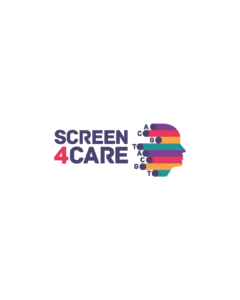 Georgi Iskrov, Ralitsa Raycheva, Kostadin Kostadinov, Georgi Stefanov, Elena Mitova, Rumen Stefanov, and Stefan Stefanov, as part of the Institute for Rare Diseases and the Department of Social Medicine and Public Health at the Medical University – Plovdiv, actively participate in the Screen4Care project, which started in 2021. Screen4Care offers an innovative research approach to accelerate rare disease diagnosis, which is based on two central pillars: genetic newborn screening and digital technologies.
Georgi Iskrov, Ralitsa Raycheva, Kostadin Kostadinov, Georgi Stefanov, Elena Mitova, Rumen Stefanov, and Stefan Stefanov, as part of the Institute for Rare Diseases and the Department of Social Medicine and Public Health at the Medical University – Plovdiv, actively participate in the Screen4Care project, which started in 2021. Screen4Care offers an innovative research approach to accelerate rare disease diagnosis, which is based on two central pillars: genetic newborn screening and digital technologies.
Current research study “Are European Reference Networks for Rare Diseases Ready to Embrace Machine Learning?” has been executed by the Institute for Rare Diseases team together with Sandra Gillner and Carl Rudolf Blankart, KPM Center for Public Management, University of Bern, Swiss Institute for Translational and Entrepreneurial Medicine (Sitem-Insel), Switzerland; Edith Sky Gross and Gulcin Gumus, EURORDIS and is published in the prestigious international journal “Orphanet Journal of Rare Diseases” (Impact factor: 3.7)
The study involved 423 medical and other specialists associated with one of the 24 European Reference Networks. Participants express limited knowledge and experience with machine learning technologies. Surveyed individuals emphasize improved diagnostic accuracy as the most important potential benefit. Respondents support machine learning as recommended part of the rare diseases diagnostic process. Despite the presumed lack of experience, there is significant enthusiasm for the implementation of machine learning technologies, especially diagnostic tools targeting rare diseases. The study emphasizes the importance of early collaboration between healthcare professionals, software developers, industry, health authorities, and patient associations. This collaborative approach is considered crucial for building trust, improving efficiency, and increasing the acceptance of machine learning. Read the full article here.
Screen4Care project has received funding from the Innovative Medicines Initiative 2 Joint Undertaking (JU) under Grant Agreement No. 101034427. The JU receives support from the European Union’s Horizon 2020 research and innovation programme and EFPIA.

